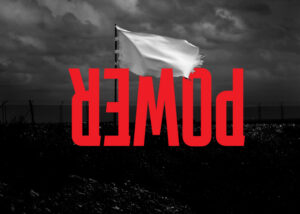This past summer I had my own Diderot Effect moment. The term comes from Grant McCracken, an anthropologist who has studied patterns of consumption. He coined it from an essay written by Denis Diderot, a French philosopher in the late 18th century.
Diderot’s essay, “Regrets on parting with my old dressing gown,” opens with a character lamenting the memory of his old, comfortable dressing gown as he sits in his stiff and starchy, if new and elegant, scarlet gown. Received as a gift that initially delighted the character, he now finds himself perplexed about the power the gown has had in transforming his room. It precipitated a complete renovation of his study because the old study looked, well, shabby, when the new gown was introduced.
The Diderot Effect has also been called a problem of upgrading. One new item can lead to a cascading effect of spending to make the upgrade fit into a person’s lifestyle. That sort of describes what happened when I received a new bike as a gift for my birthday. While thrilled with the new bike, several additional purchasing decisions came up.
I had already been thinking that I should get a new bike helmet. The 15-year-old date stamp in mine had made it way past expiration for most helmets. Now with the new bike, I definitely needed a new helmet (for protection of course).
I live in Winnipeg, where people talk about an epidemic of bike theft, and several friends have had that unhappy experience. Now I had to think about whether my combination cable lock would protect the new bike adequately or if I needed to upgrade to a keyed u-lock.
And what about fenders and new lights, and maybe a cage for my water bottle?
I do not regret parting with my old, heavy, cruiser bicycle, but when I received the new bike I needed to pause to consider my spending. Were items needs or wants? Would items be useful or simply stylish? Was I going to freely enjoy using the bike or be anxious about losing it, as if it were part of me?
The Diderot Effect has been around for a long time, and with spending on advertising in North America projected to be more than $200 billion in 2015, it has the potential to only increase. In Diderot’s essay, the character finds himself in a new gown and new room, but also in significant debt and strained relationships.
Our faith values can help us make wise decisions even when upgrades we purchase have the potential to make our spending spiral. Resources like “Giving your first fruits: Money, faith and worship,” prepared by Mennonite Foundation of Canada and available online at MennoFoundation.ca, can help us move away from spiral spending and toward lives of generosity: “We accept God’s good gifts, and we do not deny ourselves or others owning things. But the attitude with which we use those gifts—including the use of money—is where we run into snags. . . . It is in community with each other, and in communion with God, that we will find sufficiency and contentment.”
Let’s be careful to remember that our things do not define us. Instead, we can strive to be known for kindness and compassion, characteristics that open us up to spending not only on ourselves but in generosity toward others.
Dori Zerbe Cornelsen is a stewardship consultant at Mennonite Foundation of Canada, serving generous people in Manitoba and Saskatchewan. For more information on impulsive generosity, stewardship education, and estate and charitable gift planning, contact your nearest MFC office or visit www.MennoFoundation.ca.







Leave a Reply
You must be logged in to post a comment.